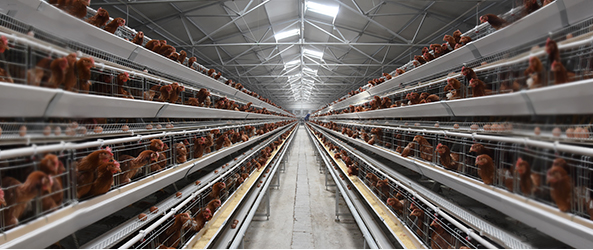Innovative Solutions for Sustainable and Efficient Chicken Cage Designs in Modern Poultry Farming
Aug . 15, 2024 12:07 Back to list
Innovative Solutions for Sustainable and Efficient Chicken Cage Designs in Modern Poultry Farming
The Role of Chicken Cages in Poultry Farming
Chicken farming is one of the most significant sectors in the agricultural industry, providing a substantial source of protein for a growing global population. As the demand for chicken meat and eggs increases, so does the need for effective farming methods. One of the critical components of modern poultry farming is the use of chicken cages. These cages serve various purposes, including promoting health and safety, increasing productivity, and ensuring efficient space utilization.
Importance of Chicken Cages
Chicken cages play a crucial role in the management of poultry farms. By providing a controlled environment, they help to keep the chickens safe from predators and harsh weather conditions. This controlled environment can significantly reduce the risk of injury and disease among the livestock. For instance, when chickens are kept in covered cages, they are less likely to suffer from pecking injuries or contract infectious diseases that can spread in free-range environments.
Moreover, chicken cages contribute to better health monitoring and management. Farmers can easily observe the chickens, checking for signs of illness or distress. Early detection of health issues can lead to prompt treatment, reducing the overall mortality rate in poultry populations. This preventative approach ultimately leads to healthier flocks and better productivity.
Space and Resource Efficiency
One of the primary advantages of using chicken cages is the efficient use of space. Caged systems allow for higher stocking densities compared to traditional free-range systems. This means that more chickens can be raised in a given area, optimizing land use and maximizing production. For commercial farms, this efficient utilization can lead to lower costs and increased profitability.
chick cages

Also, chicken cages facilitate easier feeding and management. Automated feeding systems can be effectively implemented within cage systems, ensuring that each bird receives the appropriate amount of feed at regular intervals. This automation reduces labor costs and ensures that the chickens are always well-fed and nourished, promoting faster growth rates and better egg production.
Ethical Considerations
While chicken cages offer numerous advantages, there are ethical concerns surrounding their use. The debate over animal welfare in farming practices has gained significant attention in recent years. Critics argue that caged systems can lead to stress and discomfort for the chickens, as they often have limited movement and social interaction. This has led to the rise of free-range and organic farming methods, which prioritize the welfare of the animals.
In response to these concerns, many poultry farmers are exploring the development of more humane cage systems. Enriched cages that provide additional space and resources, such as perches and nesting boxes, aim to improve the living conditions of the chickens while still maintaining the efficiency and productivity that cage systems offer.
Conclusion
In conclusion, chicken cages have become an integral part of modern poultry farming, providing safety, health management, and space efficiency. While concerns regarding animal welfare remain a prominent issue, the industry is gradually adapting to find a balance between productivity and ethics. As consumer demand for ethically produced poultry continues to rise, it will be crucial for farmers to innovate and improve cage systems to foster better living conditions while meeting the demands of the market. The future of poultry farming will likely involve a combination of traditional practices and modern advancements, ensuring both efficiency and animal welfare in the years to come.
-
Automatic Feeding Line System-Poultry Farming|Chicken Feeding&Watering
NewsJul.30,2025
-
Automatic Feeding Line System - Anping County Yize Metal Products Co., Ltd.|Pan Feeder Nipple Drinker,Broiler Farming
NewsJul.30,2025
-
Automatic Feeding Line System Pan Feeder Nipple Drinker-Anping County Yize Metal Products Co., Ltd.
NewsJul.30,2025
-
Automatic Feeding Line System-Anping County Yize Metal Products Co., Ltd.|Durable Construction&Easy Maintenance
NewsJul.30,2025
-
Automatic Feeding Line System-Anping County Yize Metal Products Co., Ltd.|Pan Feeder Nipple Drinker&Durable Poultry Farming Solution
NewsJul.30,2025
-
Automatic Feeding Line System Pan Feeder Nipple Drinker|Anping County Yize Metal Products Co., Ltd.
NewsJul.29,2025






